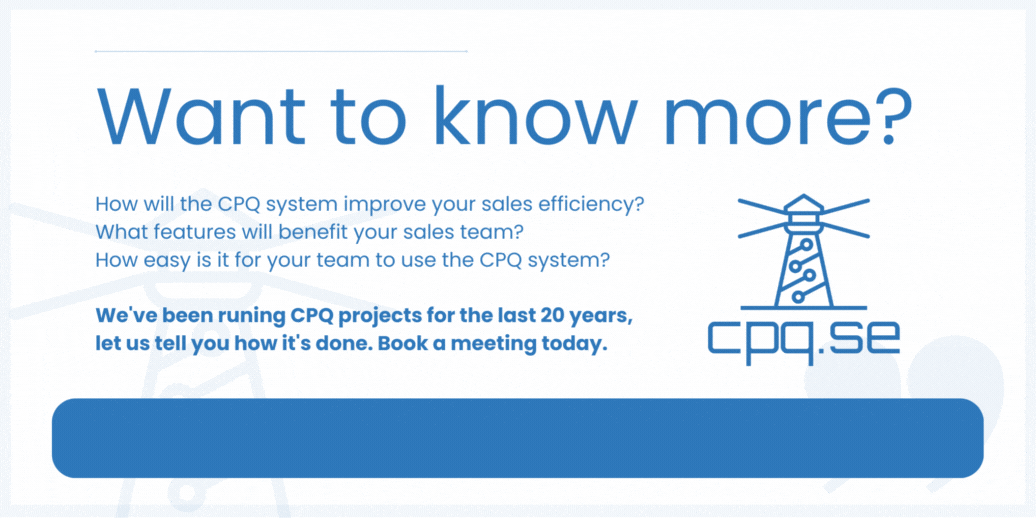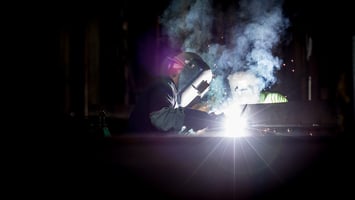Our website, cpq.se, is the go-to destination for small- and midsized manufacturers in Europe...
Truck manufacturing CPQ
CPQ, or configure-price-quote, solutions can be incredibly beneficial for truck manufacturing companies, helping to drive efficiency, predictability, and conformity in the sales process.
However, implementing a CPQ solution is a complex process that involves multiple departments and can be challenging to navigate. That's where cpq.se, expert consultants in Tacton CPQ, come in. With decades of experience and a pragmatic approach to projects, cpq.se has a track record of helping truck manufacturing companies get their CPQ solutions up and running in a SaaS environment within just a few months.
In this article, we'll explore the unique requirements of truck manufacturing CPQ and why booking a meeting with cpq.se is a smart move for any company looking to implement a CPQ solution.
Legacy Systems
One of the main challenges of implementing a CPQ solution in the truck manufacturing industry is the presence of legacy systems. Many truck manufacturing companies have been using specialized systems to configure their products since the 1980s or 1990s, and integrating a new CPQ solution with these systems can be a complex process. It's important to choose a CPQ solution that can be adjusted to fit into the existing system landscape, even if the legacy systems are old and lack good APIs.
Systemized BOM Usage
In the manufacturing industry, it's common to use separate engineering, manufacturing, and service BOMs. Truck manufacturing companies, however, have taken this concept to the next level by introducing a sales BOM, or "variant codes," to separate the "as-sold" BOM from the "as-delivered" BOM. This allows them to update the sales BOM only when engineering updates actually change the function the customer receives, reducing the need for maintenance of the CPQ solution during the product lifecycle.
Localized Needs
Truck manufacturing companies operate in a variety of local markets, each with its own unique environmental, regulatory, and cultural considerations. This means that the global configuration of the CPQ solution needs to be tailored to the needs of each individual market, with local accessories and market-specific defaults and optimizations. Local market offices often have a big influence on the configuration logic, pricing, and quote appearance of the CPQ solution, making it important to consider these localized needs when implementing a CPQ solution in the truck manufacturing industry.
Body Builder Integration
A truck is nothing without its body, and body builders are typically small, specialized companies that operate locally. Ideally, the customer should be able to configure both the vehicle and the body in a single CPQ solution, but this requires a close collaboration between the truck manufacturer and the body builder.
At a minimum, the CPQ solution should allow for the sharing of CAD drawings and other technical documents with the body builder before the truck is built.
If you want to know more about integrating solutions on a truck, check out our customer story with HMF Cranes (link).
Calculations
There are a number of calculations that need to be performed as part of the sales configuration process in the truck manufacturing industry, including simulations of things like turning radius, weight distribution, and powertrain optimization.
The CPQ solution should be able to handle these calculations and simulations, either through heuristic rules or external simulations, in order to guide the configuration process and help identify the optimal combination of options for each customer.
Complex Configuration
Truck manufacturing companies often offer a large number of configurable options, each with multiple alternatives, resulting in a vast number of potential configurations. This complexity can be overwhelming for both sales reps and customers, making it difficult to identify the optimal configuration.
To address this issue, many truck manufacturing companies use "sub-models" to simplify the configuration process, but this can limit the sales potential if the customer or sales rep is not sure which model is the best fit. To overcome this challenge, the CPQ solution should be able to handle a large number of options and alternatives and provide guidance to help sales reps and customers make informed decisions.
cpq.se - Expert Consultants in Tacton CPQ
With decades of experience and a track record of getting CPQ solutions up and running in just 3-4 months, cpq.se is a trusted partner for truck manufacturing companies looking to implement a CPQ solution. The company's pragmatic approach and focus on prioritization helps clients define product scope, pricing information, and quotation text, ensuring that the CPQ solution aligns with the specific needs and goals of the business. If you're considering implementing a CPQ solution in your truck manufacturing company, booking a meeting with cpq.se is a smart move.
Conclusion
Implementing a CPQ solution in the truck manufacturing industry is a complex process that requires a deep understanding of the unique challenges and considerations of this industry. From legacy systems and systemized BOM usage to localized needs and body builder integration, there are many factors to take into account when implementing a CPQ solution.
With decades of experience and a pragmatic approach to projects, cpq.se has a track record of helping truck manufacturing companies successfully implement CPQ solutions in a short period of time.
If you're looking to implement a CPQ solution in your truck manufacturing company, booking a meeting with cpq.se is a smart move. Reach out by leaving a comment or book a meeting using the link below.





